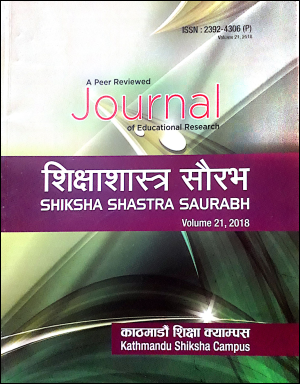Use of Large Scale Assessment Finding in South Asia: An Experience of Nepal
DOI:
https://doi.org/10.3126/sss.v21i0.35100Keywords:
Assessment, Grading, Equivalence, MappingAbstract
This paper tries to present results from a systematic review of literature that reviewed the large-scale assessments finding in the South Asian context especially focusing Nepal. The main objective of the LEAP programme is to reform the quality of learning in the Asia-Pacific region by developing capacity of the Member States to collect, analyze and utilize international and national assessment data identifying learning enablers. The review has identified the high order skills overshadowed by rote learning. It has also employed Item Response Theory (IRT) making assessments comparable and connected with the previous levels. International Assessments such as the Programme for International Student Assessment (PISA) and the Trends in Mathematics and Science Study (TIMSS) collected vast amounts of data on schools, students and households. The use of education-related “big data” for evidence-based policy making is limited, partly due to insufficient institutional capacity of countries to analyze such data and link results with policies.
Downloads
Downloads
Published
How to Cite
Issue
Section
License
© Research Management Cell (RMC), Kathmandu Shiksha Campus

